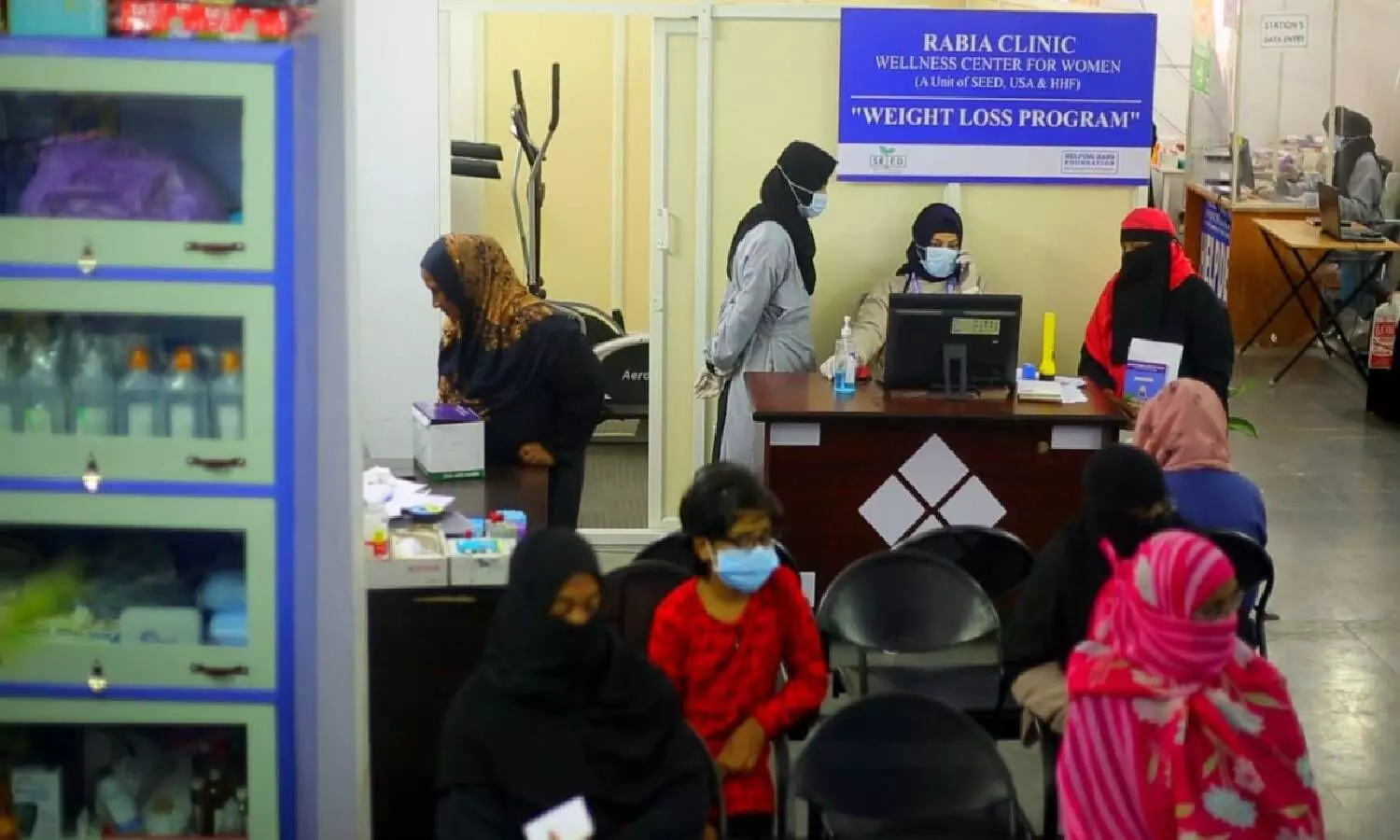HHF launches screening programme in city slums to help prevent, control chronic diseases
The community health screening programme launched by HHF will screen patients for NCDs, oral health, ophthalmology, liver disease, and cancer.
By Newsmeter Network
Hyderabad: The Helping Hand Foundation (HHF) which runs primary health care centres from three masjids in the urban slums of the city has launched a multi-disciplinary, community-level screening programme for prevention and control of chronic diseases. It covers over 50 urban slums, mostly in the southern part of the city.
With COVID-19 overwhelming health systems, patients suffering from chronic diseases particularly diabetes, hypertension, CAD, kidney problems, thyroid (non-communicable diseases or NCDs) have suffered. According to a survey conducted by HHF, there is a perceptible rise in incidence of stroke, cardiovascular disease, renal failure, and vision impairment in the last six months.
The NGO said the rise in NCDs are due to pending doctor reviews due to restricted OPDs, lack of money for expensive investigations due to loss of jobs and poor savings, and fear and anxiety of visiting hospitals during COVID-19 pandemic.
The community health screening programme launched by HHF will screen patients for NCDs, oral health, ophthalmology, liver disease, and cancer.
A total of 3,500 patients have been screened in the last one-and-a-half-months of which 90% were women. A community health desk has been established in each of the three centres operated by HHF from masjids in N.S Kunta, Rajendra Nagar, and Shaheenagar areas. The desk comprises family physicians/doctors, counselors, and dieticians.
All adult patients over 30 years are first evaluated at the community health desk. A WHO risk-assessment form which gives weightage to age, family history, exposure to smoking/alcohol along with height and weight is used to arrive at a score on a scale of 10.
Those whose values are above five are considered high-risk cases for developing non-communicable diseases and are further counselled for lifestyle changes. These cases are reviewed every month.
Others who are already morbid/co-morbid are screened for eye, kidney, and liver disease and are counseled and monitored. They have a follow-up every three months to check their health status and compliance to treatment.
Dr. Ayesha Fatima, NCD coordinator at the exclusive women's clinic in masjid Muhammed Mustafa, said most patients are from economically weaker sections and are not fully aware of the condition and complications. They tend to overlook their health due to socio-economic problems and need proper care.
"Most Women have dual responsibilities in the household. Their health is always neglected. Through this programme, we will hopefully preempt disease and save lives and valuable money of the vulnerable sections of the society," said Mr. Mujtaba Hasan Askari of Helping Hand Foundation.
Survey findings
A total of 3,500 patients have been screened to date. The HHF survey found that 53 per cent women had BMI more than 25 along with high waist circumference both of which predispose them to risk of NCDs. Five per cent or 198 women were identified as diabetic, 18.3 per cent or 642 had hypertension, 11 per cent were found to have comorbidities. One in three women with diabetes had Grade 1 fatty liver a condition that predisposes women to potentially dangerous liver disease if not corrected. Also, 75 women had PCOS and 28 cases of fibroadenoma and 51 of ovarian fibroids were also detected.
Since the launch of the programme, 350 morbid and co-morbid patients were screened so far for eye-related problems under community ophthalmology. Eighty-one per cent reported visual impairment, 41 per cent single vision, 35.7 per cent double vision, two per cent hypertensive retinopathy, and 11 per cent had cataracts.